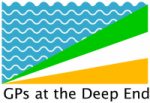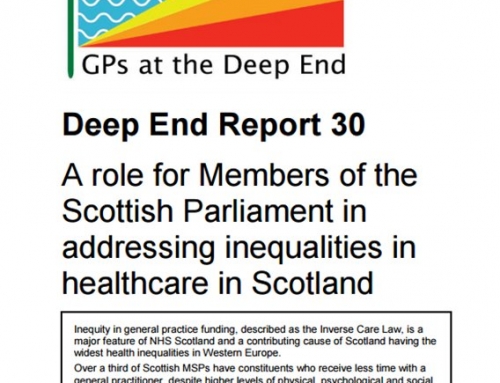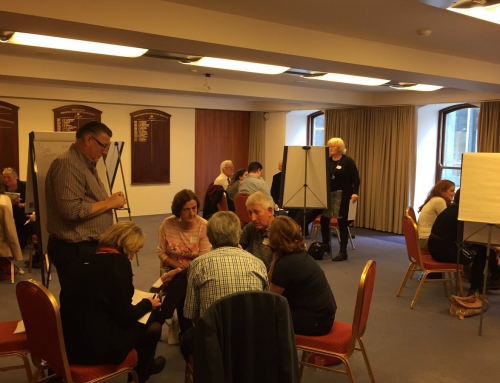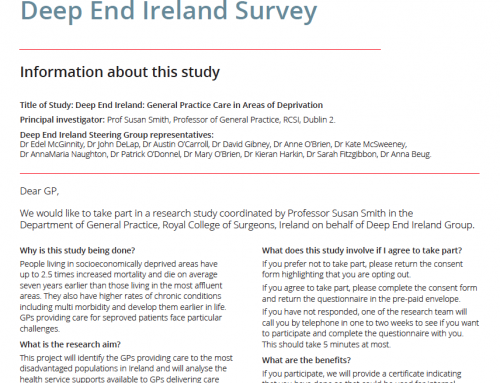Press Release Deep End Ireland
10thApril 2019
€2 million per year to support general practice in deprived areas in new GP deal
Deep End Ireland GPs have welcomed the €2 million additional funding for GPs in deprived areas announced by Minister Simon Harris. The additional multi-annual funding was negotiated between the IMO and Department of Health. It is the first time GP practices in deprived areas will receive additional funding and it is an important first step towards addressing health inequalities in deprived areas.
In Ireland, life expectancy is 4.3 years less for men in the most deprived areas compared to the most affluent. People living in deprived areas develop multiple chronic conditions (known as multimorbidity) at least ten years before those in non-deprived areas. As well as living with ill-health for longer, people living in disadvantaged communities have more than double the rate of cancer mortality, 120% higher circulatory disease mortality and over 150% higher rates ofinjuries.
Unsurprisingly given these higher health needs, consultation rates in deprived areas are also higher placing additional strains on services. A study of consultation rates in the UK found that they were 42% higher in more deprived areas. Increasing deprivation is also associated with higher rates of psychological distress and mental illness, and GPs in disadvantaged areas manage patients with more complex combinations of physical and mental health conditions. This requires much more time for consultations which isn’t possible because there are so many more sick patients to be seen. The graph below illustrates these challenges.
Graph from McClean et al using data from 956 practices in Scotland. Br J Gen Pract 2015; 65 (641): e799-e805. DOI: https://doi.org/10.3399/bjgp15X687829

Despite this increased health need there are less GPs in deprived areas than affluent areas. This is known as the inverse care law- healthcare is least available where it is most needed. North Inner City Dublin, for example, has 1 GP for every 2,500 compared to the national average of 1:1600. Until now there had been no additional support for GPs working in deprived areas, despite the multiple challenges they face. This is in contrast to the much-needed support provided to the education sector in the form of Deis schools.
Fair Society Healthy Lives (The Marmot Review, 2010) recommends strengthening preventative healthcare to reduce health inequalities. High quality primary care is ideally positioned to deliver this. The new deal contains many aspects that will improve health for everyone, but in order to reduce inequalities additional resources are needed to meet the higher needs in deprived areas. The multi-annual €2 million will go some way to supporting GP practices to provide high quality care and support recruitment and retention of GPs in these areas. Most importantly it will support them to deliver better care for their patients.
Please see our website for further information: www.deepend.ie
Contacts:
Prof Susan Smith. Email susansmith@rcsi.ie
Dr Edel McGinnity
Dr David Gibney
Dr Bridget Kiely




Recent Comments